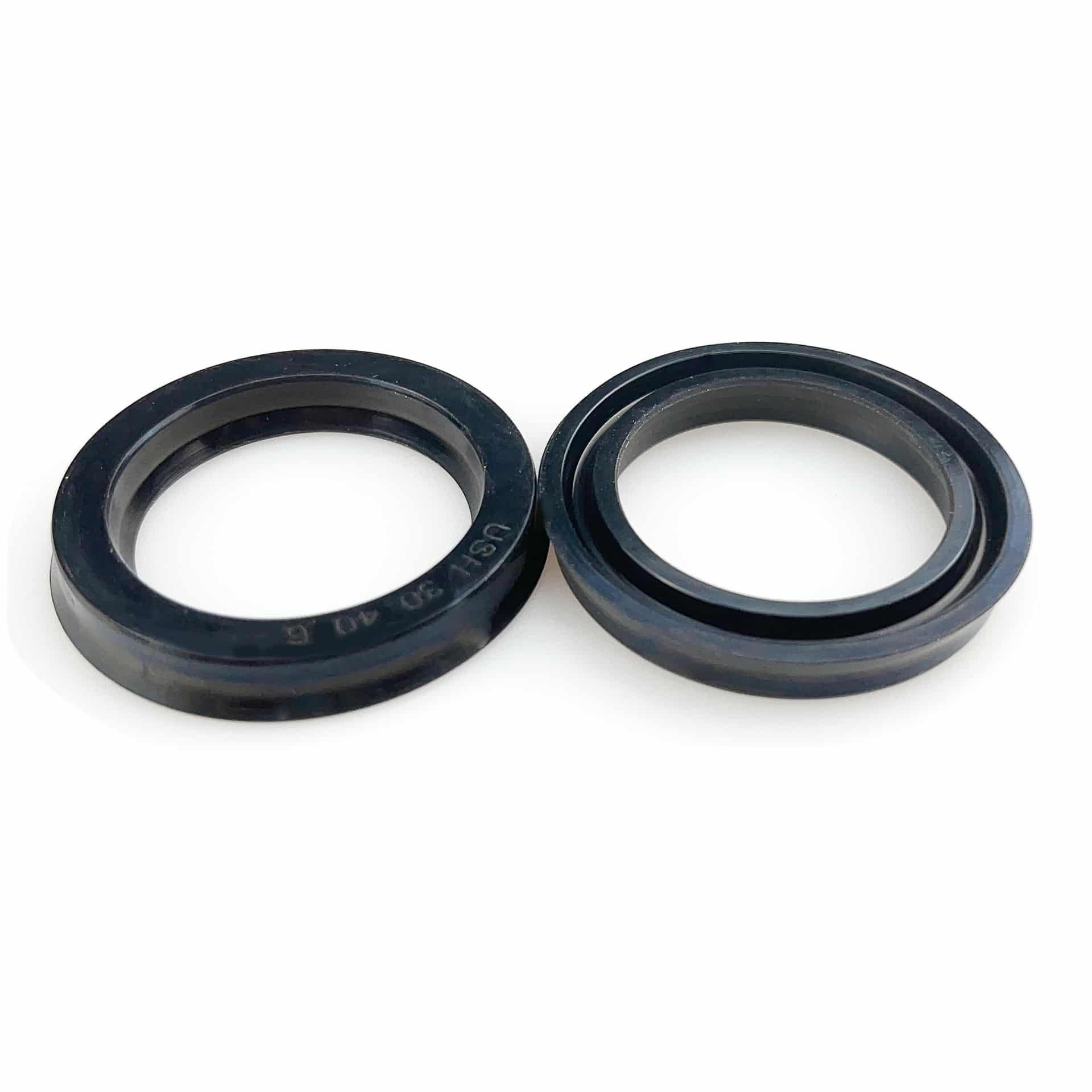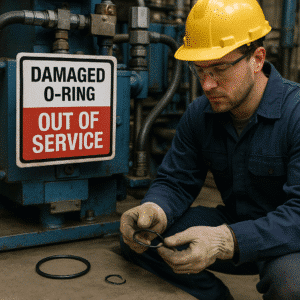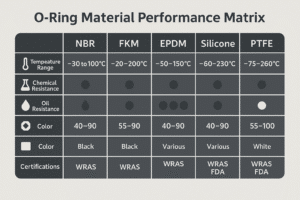When it comes to high-pressure hydraulic systems, the right buffer seal can drastically reduce system downtime and improve longevity. But choosing between UHS and USH seals can be tricky.
UHS and USH seals are both high-performance buffer seals, but they serve different needs in hydraulic systems. Let's break down the key differences and help you choose the right one for your application.

Keep reading to understand which seal suits your hydraulic system’s pressure, stroke, and operational demands in 2025.
What is a UHS hydraulic seal?
The UHS seal is a highly durable, high-pressure buffer seal used in hydraulic cylinders for mobile machinery, industrial presses, and more. It’s designed to withstand extreme pressure and prevent excessive wear from high-impact forces.

UHS seals are typically used in demanding applications where the seal must handle extreme pressures and act as a buffer to absorb shock loads.
If you’re working in construction, heavy-duty equipment, or steel manufacturing, our KDAS compact seal may also be used in tandem with UHS seals to enhance performance.
What is a USH hydraulic seal?
The USH seal is another high-performance buffer seal but with a focus on low extrusion resistance Và greater wear resistance. It is used for longer stroke lengths and heavy-duty applications where high pressures are constantly fluctuating.

USH seals are designed for even more extreme environments than UHS, making them ideal for long-lasting sealing in large industrial machinery, mining, or hydraulic presses.
UHS vs USH: Which one is right for your system?
| Tính năng | UHS Seal | USH Seal |
|---|---|---|
| Sức chịu áp suất | Up to 35 MPa | Up to 50 MPa |
| Extrusion Resistance | Vừa phải | Cao |
| Ứng dụng | Heavy-duty, mobile machinery | Extreme-duty, large systems |
| Độ bền | Tốt | Xuất sắc |
| Tính linh hoạt | Vừa phải | Thấp |
As you can see, the USH seal excels in long strokes and heavy-duty applications, while the UHS seal is perfect for general high-pressure systems where moderate shock loading occurs.
If you want to learn more about buffer seals, check out our UN hydraulic seals for a more basic but reliable sealing solution.
When should you choose UHS over USH?
Opt for UHS seals if:
- Your system operates at a moderate pressure (≤35 MPa)
- You need a flexible solution for standard hydraulic systems
- Your equipment doesn’t face frequent pressure fluctuations
On the other hand, USH seals are your go-to choice if:
- Your system deals with high-impact or shock loads
- You’re working with larger pistons or heavy-duty cylinders
- Long-term durability is a top priority
Both seals are available in various materials to withstand high temperatures and chemical exposure. For additional material options, explore our Phớt nhỏ gọn KDAS for your most demanding applications.
How to install UHS or USH seals?
Both UHS and USH seals should be installed with care to ensure proper sealing:
- Làm sạch rãnh to remove any dirt or debris.
- Bôi trơn phớt before installation to prevent damage.
- Install the seal using a press tool or hand installation—be mindful of groove dimensions.
- Ensure proper pressure during installation to avoid deforming the seal.
For detailed instructions on installation, visit our hydraulic seal guide.
Phần kết luận
Choosing between UHS and USH seals comes down to the pressure, stroke length, and wear resistance needed for your application. While UHS seals are ideal for moderate pressures, USH seals excel in extreme-duty applications.
Choose the right seal for your system today
📩 Mail:[email protected]
📞 WhatsApp:+86 17622979498
Related topic
- KDAS Compact Seal | Hydraulic Buffer Seal
- UN Hydraulic Seal | OEM Rod Seal
- IDU vs ODU Seals – Which One Should You Choose?
- How to Choose and Replace Hydraulic Seals


